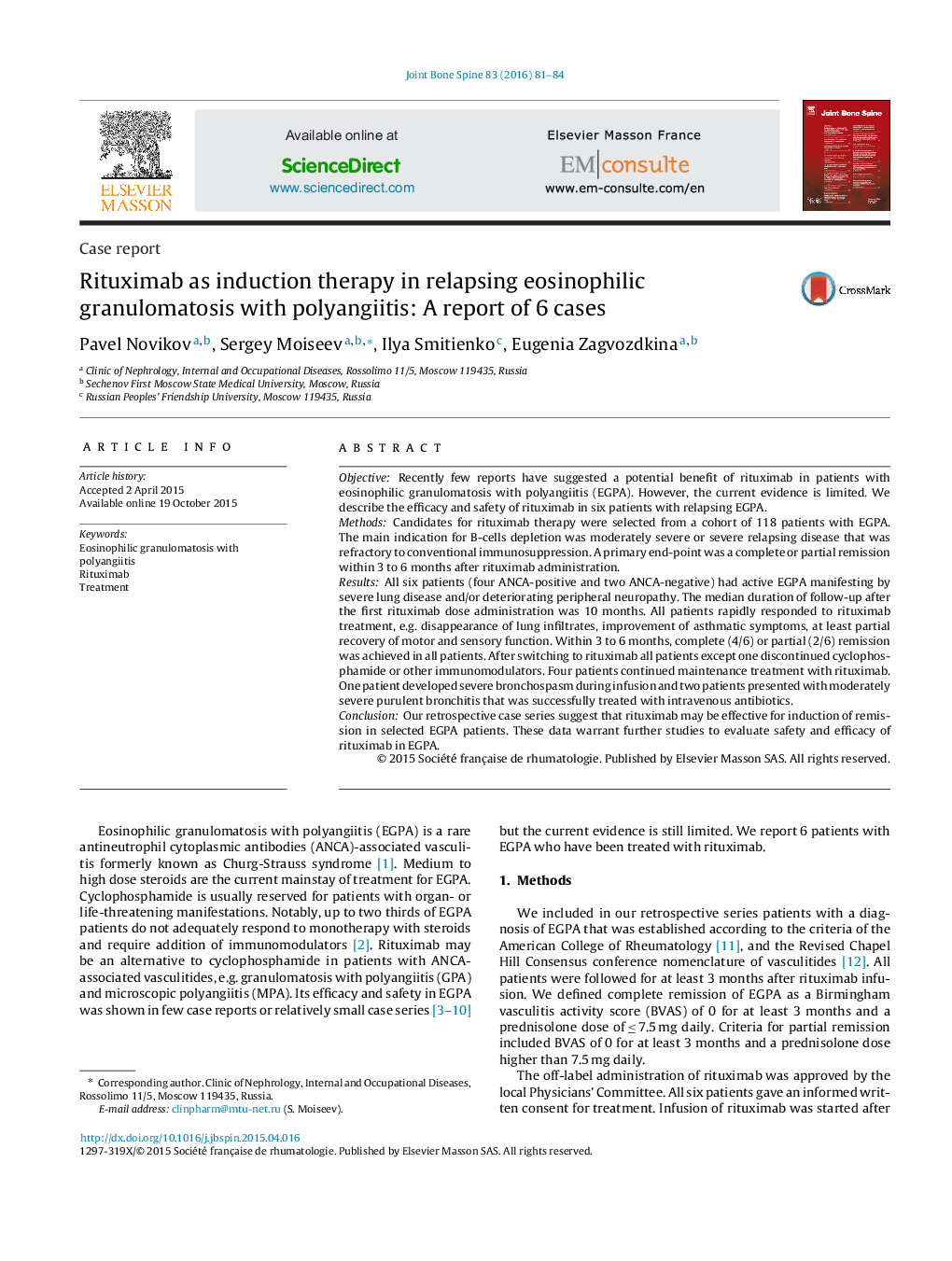| Article ID | Journal | Published Year | Pages | File Type |
|---|---|---|---|---|
| 3365526 | Joint Bone Spine | 2016 | 4 Pages |
ObjectiveRecently few reports have suggested a potential benefit of rituximab in patients with eosinophilic granulomatosis with polyangiitis (EGPA). However, the current evidence is limited. We describe the efficacy and safety of rituximab in six patients with relapsing EGPA.MethodsCandidates for rituximab therapy were selected from a cohort of 118 patients with EGPA. The main indication for B-cells depletion was moderately severe or severe relapsing disease that was refractory to conventional immunosuppression. A primary end-point was a complete or partial remission within 3 to 6 months after rituximab administration.ResultsAll six patients (four ANCA-positive and two ANCA-negative) had active EGPA manifesting by severe lung disease and/or deteriorating peripheral neuropathy. The median duration of follow-up after the first rituximab dose administration was 10 months. All patients rapidly responded to rituximab treatment, e.g. disappearance of lung infiltrates, improvement of asthmatic symptoms, at least partial recovery of motor and sensory function. Within 3 to 6 months, complete (4/6) or partial (2/6) remission was achieved in all patients. After switching to rituximab all patients except one discontinued cyclophosphamide or other immunomodulators. Four patients continued maintenance treatment with rituximab. One patient developed severe bronchospasm during infusion and two patients presented with moderately severe purulent bronchitis that was successfully treated with intravenous antibiotics.ConclusionOur retrospective case series suggest that rituximab may be effective for induction of remission in selected EGPA patients. These data warrant further studies to evaluate safety and efficacy of rituximab in EGPA.
